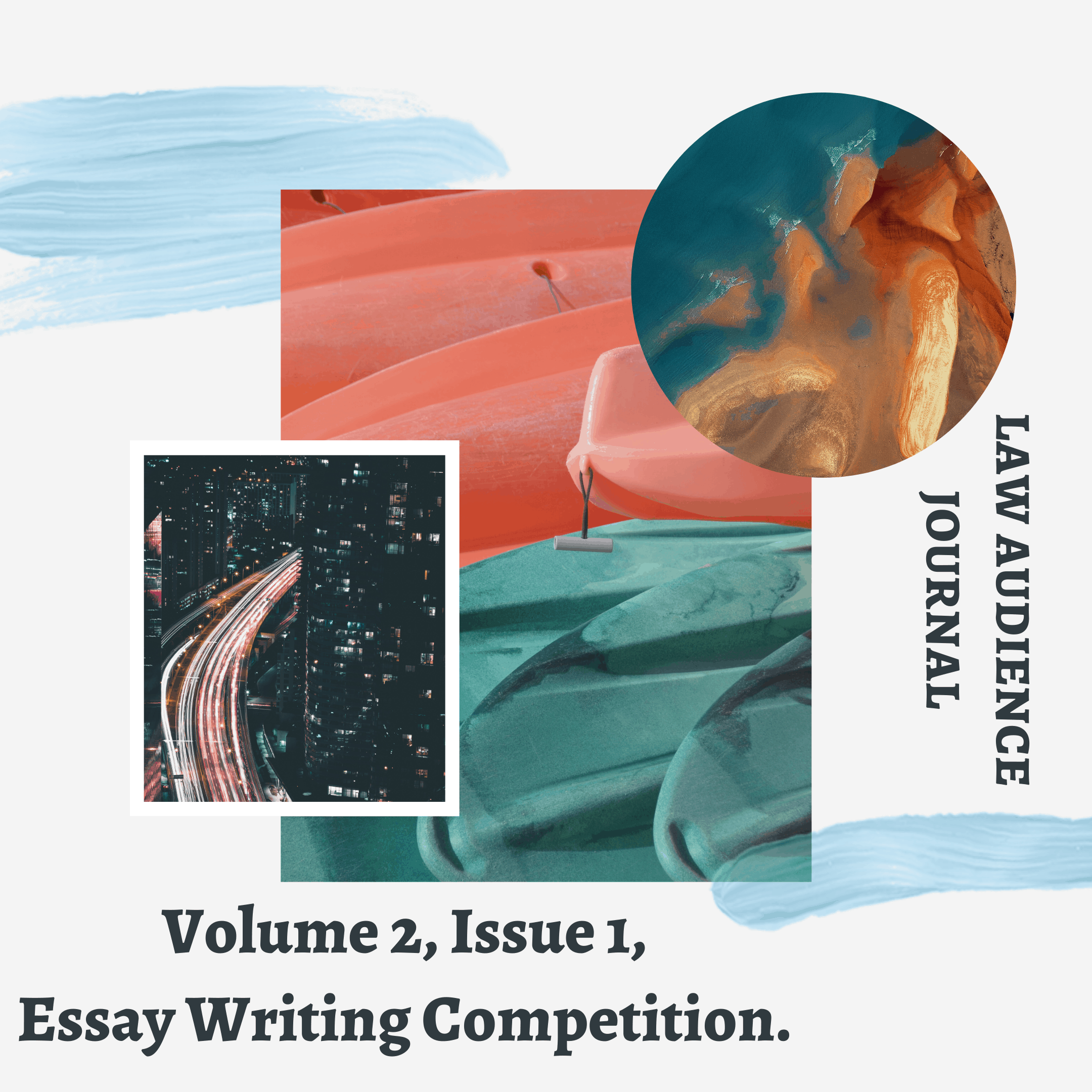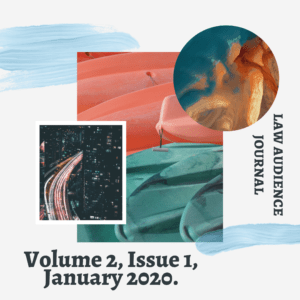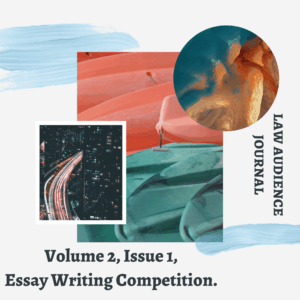AUTHORED BY: MR. VIKALP SHARMA (B.A.LL.B (HONS)), CO-AUTHORED BY: MR. Neeraj Garg (B.A.LL.B (HONS)), HIMCAPES’ COLLEGE OF LAW (AFFILIATED TO H.P.U. SHIMLA)
I. INTRODUCTION:
The word Epidemic is taken from Greek word ‘epi’ which means “upon or above” and ‘demos’ which means “people” thus epidemic disease is the rapid spread of disease to a large number of people in a given population within a short period.[1]
A pandemic is an epidemic of disease that has spread across a large region, for instance, multiple continents or worldwide, affecting a substantial number of people.[2] The epidemic diseases affect the population of a nation as well as the world at a large extent. It causes a big loss to the life, economy of a person as well as of the nation and the world.
To prevent the spread of such epidemics disease countries across the world had made law, In India The Epidemics Disease Act, 1897, deals with rules and regulations to be followed and punishment for the contravention of such rules other than this The Code of Criminal Procedure, The Indian Penal Code, The Disaster Management Act, is also useful during the times of epidemics.
In this essay, we will know about the history of epidemic diseases as well as Indian laws that are in force to deal with it.
II. HISTORY OF EPIDEMIC DISEASES:
In human history, the first notable epidemic disease discovered was Plague of Athens (430 to 426 BCE) when During the Peloponnesian War, Typhoid fever killed a quarter of the Athenian troops, and a quarter of the population over four years. In the 14th century between the period of 1331 to 1353, the plague was also known as the Black Death and the pestilence is the most fatal pandemic recorded in human history, resulting in the death of up to 70-200 million people in Eurasia and North Africa later the third plague pandemic (1855) started in China and spread into India, where 10 million people died.
In the 20th century the outcome of Spanish flu (1918 to 1920) which infected 500 million people across the globe including people on remote Pacific islands and in the Arctic, and resulted in the deaths of 20 to 100 Million people Most influenza outbreaks disproportionately kill the very young and the very old, with a higher survival rate for those in between, but the Spanish flu had an unusually high mortality rate for young adults. Spanish flu killed more people than World War I did and it killed more people in 25 weeks than AIDS did in its first 25 years.
Mass troop movements and close quarters during World War I caused it to spread and mutate faster; the susceptibility of soldiers to Spanish flu might have been increased due to stress, malnourishment and chemical attacks. Improved transportation systems made it easier for soldiers, sailors, and civilian travellers to spread the disease. In the 21st century, there has been an outbreak of many other pandemics such as Ebola Virus, Zika Virus and H1N1 etc[3].
The current pandemics are HIV/AIDS which is still incurable as no vaccine has been developed so far to cope with it. Recently the spread of COVID-19 which originated in Wuhan, Hubei province, China, in late December 2019, has caused a cluster of cases of an acute respiratory disease, which is referred to as coronavirus disease 2019 (COVID-19). The virus is novel and thus no vaccine or other medications has been discovered too far thus the only option to prevent the spread of this epidemic is to follow the preventive measures such as social distancing, lockdowns, regular hand wash, wearing a mask in public, not spitting etc.[4] The current situation of COVID-19 in India is being controlled by declaring lockdown and by using the British era law on epidemic diseases known as The Epidemic Disease Act, 1897.
III. LAWS RELATED TO EPIDEMIC DISEASES IN INDIA:
There are many laws in India which are help deal with the pandemics these laws are;
III.I THE EPIDEMIC DISEASE ACT, 1897:
India as a colonial State of Britain was introduced to the law of Public Health in 1897 to tackle bubonic plague in Mumbai (formerly Bombay). The law is meant for the containment of epidemics by providing special powers that are required for the implementation of containment measures to control the spread of the disease.
The legal provisions of the Act are;
III.I.I Section 2: Power to take special measures and prescribe regulations as to dangerous epidemic disease:
When any State is visited by or threatened with, an outbreak of any epidemic disease, the State Govt has the power under this section to empower any person to take such measures by public notice, prescribes temporary rules and regulations to be observed by the public. This section provides the power to State Govt to take all the necessary actions for the prevention of pandemic.
III.I.II Section 2A: Powers of Central Government:
Section 2A of Epidemic Disease Act, 1897, empowers Central Govt to take appropriate measures when the ordinary provision of time being in force are insufficient to prevent the outbreak of the Epidemic Disease, the Central Govt under this provision is also empowered to take measures and prescribe regulation for inspection of any ship or vessels leaving or arriving at any port.
III.I.III Section 3: Penalty:
Section 3 of the Act prescribes the punishment under this Act that any persons who disobey any regulation or order made under this Act shall be deemed to have committed an offence under Section 188 of the Indian Penal Code (45 of 1860).
III.I.IV Section 4: Protection to persons acting under Act:
Section 4 of this Act protects the person who is acting under this Act, it states that the persons working under this Act to be protected and no legal proceedings shall lie against them for the Act done by them in good faith.[5] The Central government brought an ordinance on 22nd April 2020 for the protection of healthcare workers who are being attacked. The ordinance declares that any incidence of the attack on health workers will attract the punishment from 3 months to 5 years and fine ranges from Rs 50,000 upto Rs 2 Lakh, the offence will be cognizable and non-bailable as well the investigation will be completed within two months.[6]
III.II Section 144 of the Code of Criminal procedure:
Section 144 of CrPC empowers the District Magistrate, a Sub Divisional Magistrate or any other Executive Magistrate specially empowered by the State Government direct any person to abstain from a certain act or to take certain order concerning the certain property in his possession or under his management, if such Magistrate considers that such direction is likely to prevent, or tends to prevent, obstruction, annoyance or injury to any person lawfully employed, or danger to human life, health or safety, or a disturbance of the public tranquillity, or a riot, of an affray.[7] This section is not meant to deal with epidemic disease but somehow it provides the provision to empower the executive magistrates to use it for the protection of human life, health or safety, thus in the present situation Section 144 is being used to restrict the public gatherings to prevent the spread of Coronavirus (COVID-19). It is being used to restrict mass gatherings such as political gatherings, religious gatherings, parties etc.
III.III Provisions in Indian Penal Code:
There are certain provisions provided under IPC which are useful at the time of epidemics, these provisions include:
III.III.I Section 188: Disobedience to order duly promulgated by public servant:
Section 188 of the Indian Penal Code punishes the culprits who intentionally disobeys the order promulgated by the lawful authority to do or to abstain from doing any act and such act causes obstruction, injury, or risk of such to any person lawfully employed be punished with simple imprisonment for a term which may extend to one month or with fine which may extend to two hundred rupees or with both.
And if such act causes or likely to cause danger to human life, health or safety shall be punished with imprisonment for a term which may extend to six months, or with fine which may extend to one thousand rupees or with fine or both.
Section 188 is useful during the time of pandemics to punish those who disobey the order of the lawful authorities who make such order to cope with the spread of such pandemics.
III.III.II Section 269: Negligent act likely to spread infection of disease dangerous to life:
Section 269 lays down the provision to punish those who unlawfully or negligently does any act which spreads or is likely to spread the infection of any disease dangerous to life, they shall be punished with the imprisonment which may extend to six months, or with fine or with both.
III.III.III Section 270: Malignant act likely to spread infection of disease dangerous to life:
Section 270 deals with punishing those culprits who by their intentional acts spread the infection of the deadly disease to others; they shall be punished with imprisonment up to two years or with fine or with both.
III.III.IV Section 271: Disobedience to quarantine rule:
Section 271 lays down the provision that if any person who intentionally disobeys any rule for putting any vessel into a state of quarantine, or who disobeys the regulation for intercourse between places where infectious disease prevails and other places, shall be punished with the imprisonment for a term which may extend to six months, or with fine, or with both.[8] The quarantine rule is very useful in the current crisis of Covid-19 as it is a useful preventive method to prevent the spread of the Covid-19 as the disease is spread from person to person.
III. IV. Disaster Management Act, 2005:
Disaster management Act, 2005, generally deals with disasters like earthquakes, tsunami etc. However it is not limited up to tsunamis and earthquakes as Ministry of Home Affairs declares the spread Covid-19 as a notified disaster, thus bringing it under the scope of Section 2(d) of the Act[9]. The provision of this Act which is being used by the government. The Ministry of Home Affairs published the official notification and invoked the lockdown under Section 6 of the Disaster Management Act. The Home Secretary issued guidelines for this lockdown under his powers in Section 10 of the Disaster Management Act, as the Chairman of the National Executive Committee constituted under Section 8 of the Act.[10]
In dealing with the problem of Covid-19 the govt under the provision of Section 6(2)(i) of Disaster Management Act, 2005, which deals with powers of National Authority has declared a nationwide lockdown to prevent the spread of Covid-19. Section (6)(2)(i) states that the National Authority can take such other measures for the prevention of disaster, or mitigation, or preparedness and capacity building for dealing with the threatening disaster situation or disaster as it may consider necessary.[11]
However, Disaster management Act, 2005 and Epidemic Disease Act is not enough as In the case of Paschim Banga Khet Mazdoor Samity v. State of West Bengal[12], the Supreme Court held that the government is obligated to provide adequate health facilities to the citizens of India. But the current status of medical facilities (including, but not limited to, testing kits, hospitals, and the number of people trained to combat something of this nature) suggests that India needs something more than a Disaster Management Act or an Epidemic Diseases Act that only grants powers to the government to take steps they deem necessary. India requires a methodological and comprehensive framework to combat a pandemic of this nature.
IV. CONCLUSION:
It can be concluded that epidemic diseases are very dangerous as it spreads to a large geographical area within a small amount of time and causes havoc, pandemics had caused a great loss to the human lives from the Plague in Athens to the current pandemic of Covid-19, the countries had made many laws to prevent the spread of pandemics, In India Epidemic Disease Act, 1897, Disaster Management Act, 2005, Section 144 of CrPC, Section 188, 269, 270 and 271 of Indian Penal Code are useful in dealing with epidemic diseases, the country faces some problems as some miscreants attacked the healthcare workers during the current pandemic of Covid-19 but the Govt brought the ordinance and adopted a strict law to deal with those miscreants. The Govt has also protected Right to life provided under Article 21 of the Indian Constitution by fulfilling the necessities of people through various schemes; however, India faced some problems regarding testing facilities as the hospitals, healthcare workers, equipment are not sufficient to deal with pandemics. It should be improved as India has a vast population and on limited resources and technical staff, it will burden their already heavy responsibilities.
[1] Epidemic available on https://en.wikipedia.org/wiki/Epidemic.
[2] Pandemic available on https://en.wikipedia.org/wiki/Pandemic.
[3] List of epidemics available on https://en.wikipedia.org/wiki/List_of_epidemics.
[4] Novel Corona Virus Poster available at https://www.mohfw.gov.in/pdf/Poster_Corona_ad_Eng.pdf.
[5] Epidemic Disease Act, 1897 Section 2, section 2A, Section 3, Section 4.
[6] Promulgation of an Ordinance to amend the Epidemic Diseases Act, 1897 in the light of the pandemic situation of COVID-19 available at https://pib.gov.in/newsite/PrintRelease.aspx?relid=202493.
[7] Code of Criminal Procedure section 144.
[8] Indian Penal Code Section 188, Section 269, Section 270, Section 271.
[9] India declares Covid-19 a ‘Notified Disaster’ available at
[10] Covid-19 the law of lockdown available at https://www.jurist.org/commentary/2020/04/tanay-goyal-india-lockdown/.
[11] Section 6(2)(i) of Disaster Management Act, 2005.
[12] Paschim Banga Khet Mazdoor Samity v. State of West Bengal (1996) AIR SC 2426/ (1996) 4 SCC 37.


